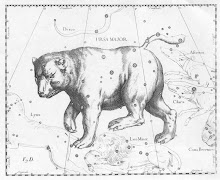Dawn Whitaker and I have been in Washington since Wednesday, as part of the "Spring" meeting of the National Council of Space Grant Directors. (Unfortunately, I have had another meeting on Friday and Saturday, but we have been discussing strategy and tasks and schedules over dinner and email.) This is something that all Space Grant Directors are expected to attend every year, including both the educational visits to Capitol Hill and the program oversight discussions with our NASA Headquarters manager.
Friday night, we got to hear from the winner of the Distinguished Service Award, astrophysicist Neil deGrasse Tyson, about the improving the role of science and science education among the public. He made some very interesting points about science and popular culture, including an example that I hadn't considered. When I was a kid, how much science was there on TV? (I'm not talking Star Trek or Lost in Space, but real science.) Maybe a few hours a month, on PBS, or Mutual of Ohama's Wild Kingdom. Now, we've got several entire networks devoted to it: Discovery Channel, Science Channel, Planet Green...
Dr. Tyson has created a new radio show (called Star Talk) which is an interesting twist on the old science program model. (Really? A radio show?) Instead of being the scientist invited onto a show to be interviewed, or even the scientist or engineer interviewing other scientists and engineers, what about a show where popular culture folks are invited onto the show by the scientist, to talk about how science affects their corner of the world? It's not just a discussion with a pop culture icon, of course. They have fans. Those fans will tune in, and download the podcast. And they get exposed to more science and technology and engineering and math... in ways that they find relevant to their lives.
One of the other questions raised during the discussion with Dr. Tyson was about how we could get kids to be excited about science. His answer, which echoes the comments we heard from Dr. Jeff Goldstein of the National Center for Earth and Space Science Education, is that kids start out as explorers and investigators and curious scientists. (By the way, both Dr. Goldstein and Dr. Tyson are graduates of the Bronx High School of Science.) We have got to stop killing off that enthusiasm. Science isn't just about the book knowledge; it's about the processes of discovery. It's about showing people that science isn't just for a few eggheads out there.
So, if you see Dr. Tyson on The Colbert Report, or local families spending the evening in one of Dr. Goldstein's programs at the National Air and Space Museum, think about this--lots of people get touched by those experiences. Science is everywhere. Everyone is touched by it. This is what we need to do in Space Grant--show people how their lives are touched, on a daily basis, by STEM and the activities that NASA manages.
Next up... How do you know when you've done a good job?
Periodic updates from the Director of the Indiana Space Grant Consortium, Prof. Barrett S. Caldwell
Subscribe to:
Post Comments (Atom)





No comments:
Post a Comment